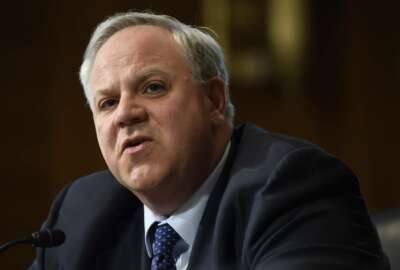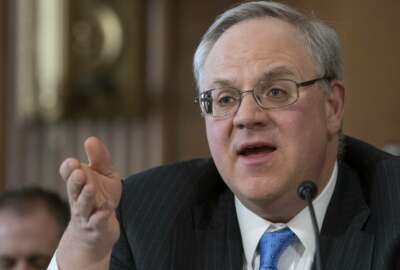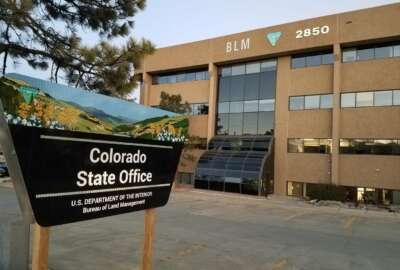Interior will move BLM headquarters, senior officials back to DC
As a way to "minimize disruptions," the Bureau of Land Management will not require employees, with the exception of a few core senior leaders, to move to...
In a reversal from the previous administration, the Bureau of Land Management headquarters, along with a few senior officials, will move from Grand Junction, Colorado back to Washington, D.C., the Interior Department announced Friday.
The Trump administration moved the BLM headquarters to Grand Junction last year as part of a plan to relocate more than 300 positions to Colorado and other western states.
Few employees actually moved as part of the BLM relocation; close to 90% left the agency, retired or found other jobs. Of the 328 positions moved out of Washington, 41 of the employees ordered to relocate to new sites did so, including three employees who moved to Grand Junction, Interior said Friday.
Moving forward, Interior will maintain its Grand Junction office as BLM’s “western headquarters.” The BLM director and a few other leadership positions will move to Washington, putting them in closer proximity to Interior officials, Congress, other agencies and stakeholders who visit the nation’s capital, the department said.
“It is imperative that the bureau have the appropriate structure and resources to serve the American public,” Interior Secretary Deb Haaland said Friday in a statement. “There’s no doubt that the BLM should have a leadership presence in Washington, D.C. — like all the other land management agencies — to endure that it has access to the policy, budget and decision-making levers to best carry out its mission.”
Some 95% of the bureau’s workforce already worked outside of Washington before the BLM relocation, and some of those employees will operate out of the Grand Junction office, Interior said.
Notably, BLM doesn’t plan to require employees, outside of the core group of senior leaders, to move to Washington, Interior said.
“The past several years have been incredibly disruptive to the organization, to our public servants and to their families,” Haaland said. “As we move forward, my priority is to revitalize and rebuild the BLM so that it can meet the pressing challenges of our time, and to look out for our employees’ well-being.”
Interior said it reached this decision after speaking with employees, tribes, Congress and other elected leaders in Colorado. Haaland told BLM employees about her decision on Friday.
The department said the changes will “provide clarity” for BLM’s workforce. Expanding the bureau’s presence in Grand Junction will improve access for western stakeholders, Interior said.
“While I am disappointed that the national headquarters will be in Washington, I believe establishing and growing a permanent BLM Western Headquarters in Grand Junction should be a very positive development,” Sen. Michael Bennet (D-Colo.) said Friday in a statement. “I’ve spoken to DOI leadership about the importance of both staffing up the office to fill current vacancies and continuing to grow the BLM’s presence in Grand Junction — in number of employees and significance.”
Interior has spent the last several months reevaluating the BLM relocation. In the Biden administration’s 2022 budget request, the department cited plans to assess “the impact of the significant loss of experience.”
The BLM relocation received pushback from some employees and former BLM executives at the time, as well as members of Congress in the National Capital Region. They viewed the BLM relocation, as well as a separate move of a few hundred Agriculture Department economists from Washington to Kansas City, Missouri as a plan to unnecessarily move federal employees from their homes.
Like the BLM relocation, few USDA employees actually moved and the agency is struggling to rebuild. About 40% and 60% of employees targeted for the relocation left USDA’s Economic Research Service and National Institute of Food and Agriculture, respectively.
Copyright © 2025 Federal News Network. All rights reserved. This website is not intended for users located within the European Economic Area.
Nicole Ogrysko is a reporter for Federal News Network focusing on the federal workforce and federal pay and benefits.
Follow @nogryskoWFED







